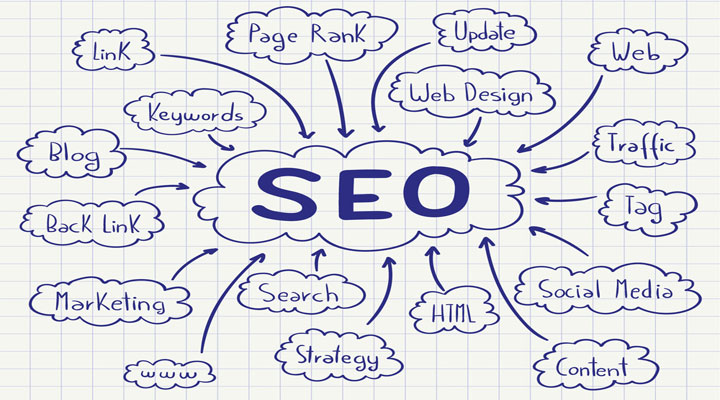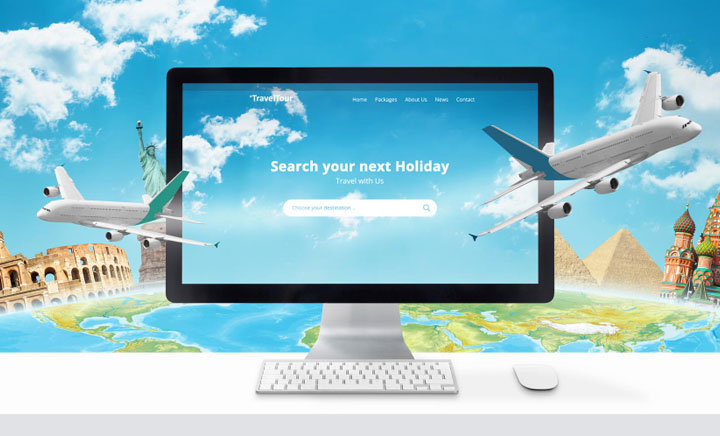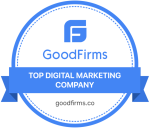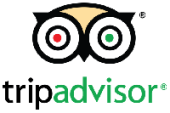Search engine optimization (SEO) is a powerful tool for travel businesses and tour operator to attract organic traffic, convert potential customers, and outpace competitors. With millions of travelers searching for information online daily, having a strong SEO strategy ensures your business appears at the right time and place to capture their interest. This guide aims to provide comprehensive, actionable SEO strategies tailored to the unique demands and opportunities of the travel industry.

With travelers relying heavily on search engines to find destinations, accommodations, and itineraries, ranking for relevant keywords is critical. A strong SEO strategy ensures your business stands out and attracts the right audience. Without visibility, your business risks losing potential customers to higher-end competitors.
Travel demand often peaks around specific seasons, holidays, or events—for example, searches for summer vacation destinations or winter holiday packages surge during particular months. Optimizing for seasonal keywords ensures your business captures attention precisely when consumers plan their trips. By preparing content ahead of peak seasons, you can stay ahead of the competition and maximize bookings.
Travel businesses frequently cater to diverse audiences—local and international. Whether a tour operator offering local experiences or a hotel targeting international tourists, SEO helps you rank well in local searches (e.g., “best tours in Rome”) while targeting broader, international keywords to reach travelers worldwide. This dual approach ensures you connect with audiences at every level, enhancing brand awareness and revenue opportunities.
Appearing at the top of search results doesn’t just drive traffic—it also builds trust. Consumers are more likely to choose businesses they perceive as authoritative and reliable, and a well-optimized website signals professionalism. By incorporating elements like user reviews, high-quality content, and secure transactions, SEO helps establish your brand as a trusted player in the travel industry.
Search engine optimization (SEO) is a powerful tool for travel and tour businesses to attract organic traffic, convert potential customers, and outpace competitors. With millions of travelers searching for information online daily, having a strong SEO strategy ensures your business appears at the right time and place to capture their interest. This guide aims to provide comprehensive, actionable SEO strategies tailored to the unique demands and opportunities of the travel industry.
SEO is an essential weapon for travel and tour companies to generate organic traffic, draw clients, and beat rivals in the market. Millions of tourists look up information online daily, so companies must have a strong SEO plan to show up when they want to and grab their attention. This manual offers thorough, doable tactics created especially for the tourism sector, tackling its particular prospects and problems. By implementing these strategies, your company may expand its audience, improve its online visibility, and succeed over the long term in a cutthroat industry.
Keyword research forms the foundation of any successful SEO strategy. Targeting the right keywords for travel and tour businesses ensures that your website ranks for searches relevant to your offerings. Here are the key aspects of keyword research:
Destination-based keywords is critical for attracting travelers searching for specific locations. For example, keywords like “Best resorts in Bali” or “Adventure tours in New Zealand” help your business rank for highly targeted search queries, connecting you with potential customers who are actively planning trips to these destinations.
Long-tail keywords cater to niche and particular search intents. Travelers searching for phrases like “family-friendly safaris in Africa” or “luxury beachside villas in Thailand” are often closer to making a booking. Optimizing your content for these detailed queries can drive high-conversion traffic to your website.
Travel searches fluctuate based on seasons, holidays, and local events. For instance, searches for “Christmas markets in Europe” peak during the holiday season. Identifying and targeting seasonal keywords ensures your website remains relevant throughout the year, aligning your offerings with traveler demand.
Transactional keywords indicate a strong intent to book or purchase, such as “Book luxury hotels in Paris” or “Buy tickets for a Rome city tour.” By focusing on these keywords, you can attract users who are ready to convert, driving direct revenue for your business.
To streamline your keyword research, leverage industry-leading tools like:
On-page SEO optimizes individual web pages to improve rankings and attract relevant traffic. For travel businesses, this involves tailoring content, metadata, and design elements to meet the needs of potential travelers. Key areas include:
These elements are the first things users see in search results, making them critical for attracting clicks. Optimize title tags and meta descriptions with keywords related to destinations, activities, and booking intents. For example, a title like “Book Luxury Safari Tours in Kenya” and a meta description highlighting key features can increase clicks.
With most travelers using mobile devices to search and book, ensuring your site is mobile-friendly is essential. Implement responsive design, optimize loading times, and consider Accelerated Mobile Pages (AMP) to enhance mobile user experience.
On-page SEO optimizes individual web pages to improve rankings and attract relevant traffic. For travel businesses, this involves tailoring content, metadata, and design elements to meet the needs of potential travelers. Key areas include:
Technical SEO addresses the backend elements of your website, ensuring it runs smoothly and meets the requirements of search engine algorithms. Strong technical SEO enhances user experience for travel businesses and ensures better rankings. Key considerations include:
Site speed is a critical ranking factor that significantly affects user experience. Slow-loading pages can increase bounce rates, particularly for travelers seeking quick information. Optimize images, leverage browser caching, and use a content delivery network (CDN) to improve load times.
Use schema markup to provide search engines with additional information about your content. For travel businesses, structured data can highlight key offerings such as local tours, travel packages, events, and reviews, making your site more visible and appealing in search results.
Content marketing is the cornerstone of attracting and engaging travelers. High-quality, informative, and visually appealing content helps establish authority while driving organic traffic. Strategies include:
Publish comprehensive guides about popular destinations, covering attractions, cultural insights, travel tips, and itineraries. These guides provide value to readers and establish your expertise.
Create content such as “Top 10 Beaches in the Caribbean” or “Best Adventure Tours in Asia.” These formats are highly shareable and cater to travelers seeking inspiration and recommendations.
Encourage customers to leave reviews, share testimonials, and upload photos or videos of their travel experiences. This boosts credibility and creates fresh, engaging content for your site.
Use video to showcase travel experiences, destinations, and itineraries. Videos are highly engaging and can be shared across platforms, driving traffic back to your website.
Building high-quality backlinks is essential for improving domain authority and driving referral traffic. Strategies include:
Collaborate with travel bloggers, influencers, and other businesses in the travel industry to generate backlinks and expand your reach.
Ensure your business is listed in relevant local directories, travel platforms, and city guides. These listings improve visibility and attract targeted traffic.
Publish valuable content on high-authority travel blogs and websites. Guest posts can drive traffic to your site while building backlinks and brand recognition.
Create shareable assets like infographics, videos, or comprehensive guides that others in the travel industry will likely link to and share.
Optimize your Google My Business profile with accurate details, including your name, address, phone number, and photos. Encourage customers to leave reviews to improve local rankings.
Ensure your Name, Address, and Phone Number are consistent across all online platforms, including directories, social media, and your website.
Get listed on platforms like Yelp, TripAdvisor, and niche travel directories. These listings enhance local visibility and drive traffic.
Create blog posts or dedicated pages targeting local keywords. For example, “Top Things to Do in [City]” or “Best Restaurants Near [Attraction]” can attract travelers searching for activities and services in your area.
By implementing these strategies, travel businesses can ensure a robust SEO foundation that drives traffic, builds credibility and converts visitors into loyal customers.
Focusing on these areas helps hospitality businesses enhance online visibility, attract more guests, and boost bookings.
Travel agencies, both traditional and online, can boost visibility and drive bookings through effective SEO strategies. Agencies can attract a wider audience by targeting keywords for destinations, trip types, and packages and optimizing landing pages. Creating engaging content for blogs, social media, and newsletters helps showcase offerings and increase organic search traffic, making it easier for customers to find and book their ideal trips.
Focusing on these strategies ensures travel agencies attract diverse customer segments, enhance package visibility, and drive more bookings through organic search and targeted campaigns.
SEO for tour operators – in the adventure, cultural, and niche markets thrive on targeting particular traveler interests. To succeed in the competitive online travel industry, leveraging SEO strategies that speak directly to niche audiences using long-tail keywords and relevant content is crucial.
Focus on keywords that reflect the unique nature of your tours. These could include specific destinations, activities, or cultural experiences your target audience is searching for.
Create in-depth content that answers specific traveler questions, shares expert advice, and showcases unique aspects of your tours.
Share the experiences of past travelers who have gone on your tours. These stories build trust and help rank for long-tail keywords like “best adventure tour in Nepal” or “unique cultural tour in Morocco.”
Experience-based businesses, such as those offering adventure sports or cultural experiences, focus on providing unique, hands-on opportunities for travelers. These businesses must highlight their offerings’ immersive, once-in-a-lifetime nature, using SEO to connect with people seeking these types of activities.
Many experience-based businesses are dependent on their specific geographical location. SEO efforts should target travelers seeking unique experiences in particular regions or countries.
Adventure sports and cultural experiences are inherently visual. High-quality images and videos can drive engagement, making them critical for optimizing your website and social media content.
For example: “Top 5 Scuba Diving Spots in Bali” or “Best Surfing Beaches in Costa Rica for Beginners.”
Example: “What to Expect During a Traditional Flamenco Dance Tour in Spain.”
Encourage customers to share their experiences via social media, blog comments, or testimonials. Highlight their stories and photos on your website to build social proof and trust. This can also include video testimonials or user-generated content from past clients, showcasing the adventure or cultural activity in action.
High-quality images and videos can showcase the excitement and beauty of the experience. For example:
The luxury and wellness travel sector targets affluent travelers seeking high-end, exclusive experiences to promote well-being, relaxation, and indulgence. For businesses in this space, it’s crucial to focus on SEO strategies that emphasize exclusivity, quality, and unique offerings that align with the expectations of this discerning audience.
Craft SEO strategies that resonate with high-net-worth individuals (HNWIs) who prioritize exclusivity, privacy, and personalized service.
Focus on creating content that reflects the luxury and tranquility of your offerings, ensuring that the tone and language match the high-end nature of your brand.
Luxurious destinations and wellness experiences often rely on stunning visuals. High-quality imagery and videos are essential to convey the premium nature of your services.
Create a compelling piece of content detailing why a particular destination, resort, or spa offers the best luxury wellness. This could include:
Example: “Why The Four Seasons Spa in Bali is the Ultimate Wellness Retreat.”
Write a destination guide focusing on wellness retreats that offer an immersive, rejuvenating experience. Include:
Example: “Top Luxury Wellness Retreats for Rejuvenation in the Maldives.”
Share stories or blogs highlighting luxury travel experiences, such as private yacht trips, helicopter tours, or exclusive access to top destinations. These stories should be aspirational, helping potential clients envision themselves enjoying an indulgent, stress-free getaway.
Example: “A Day in the Life of a Luxury Yacht Owner in the Greek Islands.”
Showcase testimonials and stories from guests who have experienced your luxury or wellness services. These can be in the form of:
Transportation providers play a crucial role in the travel experience, offering services that cater to convenience, comfort, and exploration. SEO for these businesses should focus on meeting user intent for practical information, route planning, and travel inspiration, ensuring potential customers find your services efficiently when planning their trips.
Highlight ease of booking, availability, and pricing transparency. Keywords should reflect user needs, like “affordable car rentals near [location]” or “reliable shuttle services to [destination].”
Optimize content around popular routes, travel itineraries, and destination-specific searches.
For location-based services, such as car rental locations or shuttle hubs, ensure your Google My Business profile is up-to-date with accurate information, customer reviews, and location keywords.
Create a blog or landing page focusing on road trip ideas starting from a specific city where your services are available. Include:
Example: “Best Road Trips Starting in Los Angeles: From Pacific Coast Highways to Desert Adventures.”
Write about trending or must-visit cruise destinations for the upcoming year. Focus on:
Example: “Top Cruise Destinations for 2025: From the Caribbean to the Norwegian Fjords.”
Develop practical content that addresses common customer questions and concerns. Examples include:
Offer tools or resources like route planners or fuel cost calculators. For example:
Tailor content to peak seasons or events in your service areas. Examples:
Use high-quality images and videos to showcase your vehicles, destinations, or cruise amenities. Include:
Travel tech startups are reshaping the travel industry with innovative solutions like booking platforms, itinerary planners, and travel apps. SEO and app store optimization (ASO) are vital for these businesses to increase visibility, build authority, and drive user adoption.
Optimize your mobile app’s visibility in app stores (Google Play, Apple App Store) by using relevant keywords, compelling descriptions, and high-quality visuals.
Focus on keywords that appeal to tech-savvy travelers, such as “best travel app,” “trip planner,” or “AI travel assistant.”
Create tutorials, FAQs, and blog posts to showcase your platform’s features and benefits while solving user pain points.
Help users navigate your app or platform by creating easy-to-follow tutorials and FAQ pages. Examples include:
Tutorials can be written guides, infographics, or video walkthroughs catering to different learning preferences.
Establish authority in the travel tech space by publishing insightful blog posts on industry trends and your platform’s role in the evolving landscape. Examples:
Share stories of customers who’ve successfully used your app or platform. Include details about:
Example: “How [Your App] Helped a Family Save 20% on Their European Vacation.”
Keep users engaged by publishing content about new features, updates, or partnerships. Examples:
Use interactive tools to engage your audience and showcase your app’s capabilities. Examples include:
Create engaging videos that highlight key features of your app or platform. Examples:
Event-based travel businesses cater to niche markets such as destination weddings, corporate events, and other group-focused trips under the Meetings, Incentives, Conferences, and Exhibitions (MICE) segment. These businesses must implement highly targeted SEO strategies to connect with wedding planners, event organizers, and corporate clients seeking seamless travel solutions.
Use keywords tailored to specific events like “best wedding venues in [country],” “conference facilities in [city],” or “corporate retreat packages in [region].”
High-quality visuals and detailed event examples are crucial to inspire and convince planners and clients.
Create resources like guides, checklists, and case studies to address the needs of professional planners and corporate decision-makers.
Develop location-specific content that highlights the best venues for destination weddings. Include:
Example: “Top Destination Wedding Venues in Italy: From Romantic Vineyards to Luxurious Villas.”
Create comprehensive guides for corporate clients planning retreats or team-building events. Focus on:
Example: “How to Plan a Corporate Retreat in Bali: Top Venues and Team-Building Activities.”
Offer downloadable resources that provide practical help to event organizers. Examples include:
Showcase successful past events to build trust and credibility. Highlight:
Example: “How We Helped Plan a 500-Guest Destination Wedding in Santorini.”
Promote packages or discounts tied to specific seasons or events, such as:
Help clients provide a seamless experience for their guests with content like:
Travel content creators, including bloggers and influencers, rely on personal branding, SEO, and affiliate marketing to grow their audience and monetize their platforms. Effective SEO strategies can help them maximize visibility, attract relevant traffic, and convert readers into followers or buyers.
Build a strong online presence through consistent messaging, visual identity, and unique storytelling.
Optimize blog posts, videos, and other content to rank higher on search engines by targeting relevant travel-related keywords.
Use SEO to drive traffic to content with affiliate links, boosting revenue through product recommendations and partnerships.
Create a comprehensive guide featuring recommended travel products optimized for keywords like “top travel gear 2025” or “best lightweight luggage for travelers.” Include:
Example: “Best Travel Gear for 2025: Must-Have Items for Every Explorer.”
Write detailed travel guides for specific destinations, incorporating affiliate links for accommodations, tours, or local experiences. Include:
Example: “The Ultimate Travel Guide to Iceland: Where to Stay, What to Do, and How to Save.”
Address common travel challenges to attract readers actively searching for solutions. Examples:
Optimize for long-tail keywords like “how to pack for long trips” or “cheap flights to Europe 2025.”
Create shareable, aspirational content to grow your audience. Examples:
Use SEO on platforms like YouTube to increase video content visibility. Examples:
Highlight partnerships with brands or destinations, ensuring the content aligns with your brand and provides value to your audience. Examples:
Local destination services, including tourist centers, guides, and attractions, cater to travelers seeking authentic, immersive experiences. These businesses benefit significantly from hyper-local SEO strategies to attract nearby tourists and global travelers planning visits.
Optimize content for specific neighborhoods, landmarks, or regions to target users searching for local experiences.
Claim and fully optimize your GMB listing with accurate information, photos, and reviews to improve visibility in local searches.
Provide detailed guides and itineraries to inspire travelers and answer their questions.
Create concise, engaging guides for short-term travelers. Include:
Example: “What to Do in Paris in 24 Hours: The Ultimate Layover Guide.”
Write detailed guides focused on popular attractions, covering:
Example: “Guide to Visiting the Eiffel Tower: Tips for First-Time Visitors.”
Tailor content to reflect seasonal events or local celebrations, such as:
Promote unique, lesser-known experiences through blog posts or videos. Examples:
Answer common questions travelers have about your destination or services. Examples:
Share testimonials or stories from satisfied visitors. Examples:
Use engaging tools to keep visitors on your site longer. Examples:
Measuring the success of your SEO efforts is essential to ensure your strategies are driving results and meeting business objectives. Travel businesses should focus on tracking key performance indicators (KPIs) that align with their goals: increasing visibility, driving bookings, or enhancing user engagement.
PPC campaigns are a powerful tool for travel and tourism businesses aiming to attract new customers and drive bookings. With strategic keyword targeting, audience segmentation, and ad formats tailored for the industry, businesses can maximize their return on investment. At Travel & Tour Digital Marketing, we use a combination of seasonal, transactional, and long-tail keywords to target potential travelers at every stage of their journey. Our results-driven approach ensures your travel business stands out in a competitive market.
Organic traffic refers to visitors arriving at your website from search engines without paid advertisements. Monitoring organic traffic growth is one of the most precise indicators of your SEO campaign’s effectiveness.
Tracking your rankings for specific destination-related keywords helps measure visibility and competitiveness in search results.
Conversions are the ultimate goal of most travel businesses, whether in bookings, inquiries, or newsletter sign-ups.
Backlinks from reputable travel websites, blogs, or local directories are critical in improving domain authority and search rankings.
In addition to the primary KPIs, other metrics can offer deeper insights into your SEO performance.
Establish a regular reporting cadence and compare metrics against benchmarks or historical data to gauge success effectively.
Measuring the success of SEO for travel businesses requires tracking a mix of traffic, engagement, and conversion metrics. Regularly analyzing these KPIs enables you to refine strategies, capitalize on opportunities, and ensure your SEO efforts align with your business goals. Travel businesses can stay competitive and drive sustained growth by leveraging tools like Google Analytics, Search Console, and specialized SEO platforms.
In the travel and tourism industry, a strong online presence is important for driving bookings, increasing brand visibility, and reaching your target audience. Choosing the right SEO partner can make all the difference in achieving these goals.
Here’s why we are the perfect fit for your travel and tour business:

We build strong partnerships based on trust, transparency, and results.
Our success lies in combining creativity, technical expertise, and a deep understanding of the travel industry. We stay updated on the latest SEO trends and adapt quickly to changes in search engine algorithms, ensuring that your business remains dynamic.
We have a solid track record of delivering measurable success for businesses in the travel and tourism sector.
No two travel businesses are alike, and we believe your SEO strategy should reflect the uniqueness of your brand, services, and goals.
While SEO is the cornerstone of our services, we go above and beyond to offer a comprehensive suite of digital marketing solutions that harmoniously amplify your results.
When you partner with us, you’re choosing more than just an SEO agency—you’re choosing a team dedicated to your growth and success. With a proven track record of delivering results, personalized strategies tailored to your needs, and a thorough approach to digital marketing, we are your trusted partner in taking your travel and tour business to new heights. Contact us today to start your journey toward greater online visibility, more bookings, and sustainable growth.
Ready to see how your travel business can thrive online? Take advantage of our free SEO audit or consultation, explicitly designed to give you a clear understanding of where your website stands and how it can perform better. Our audit covers all the crucial aspects of SEO, including:
With this free audit, you’ll walk away with actionable insights and a roadmap to enhance your SEO performance. Let us show you how minor tweaks can significantly improve your online visibility and bookings.
We understand that the travel industry requires a unique approach to SEO. Our experience in the travel and tourism sector has given us the expertise to create tailored strategies that deliver results. We focus on:
Whether you’re looking to attract local tourists or reach a global audience, our team knows what works to elevate your brand in the competitive travel market. Let’s work together to take your online presence to new heights.
With over 16 years of demonstrated success, we are a trusted partner to leading industry authorities and top platforms in digital marketing and web design.
















Travel & Tours Digital Marketing is the industry standard for travel and tourism digital marketing. We build lasting relationships through results, not long-term contracts.